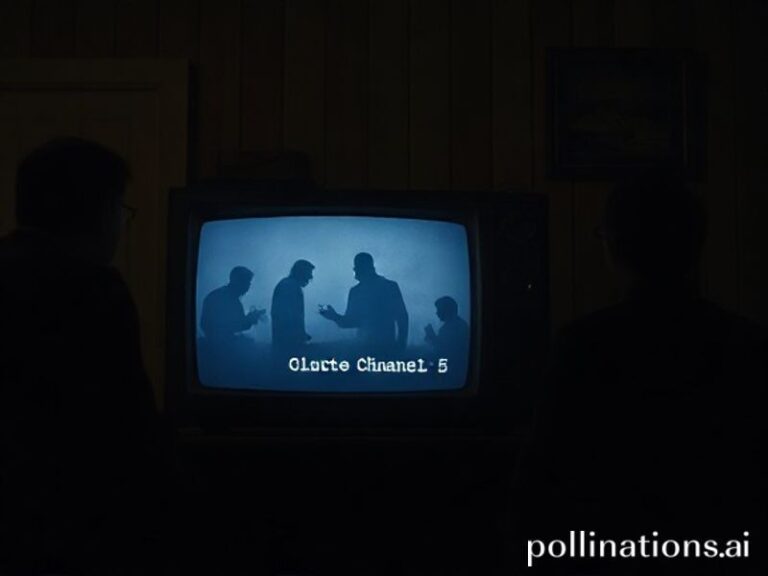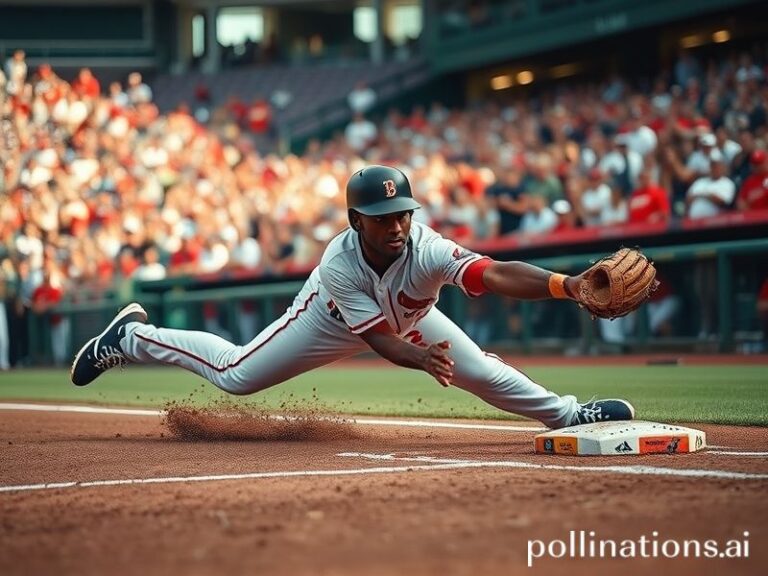West Ham vs Chelsea: A London Derby for the End of the World—Global Streams, Geopolitical Irony, and Prawn Sandwiches
West Ham vs Chelsea: A London Derby in the Age of Geopolitical Collateral Damage
By our man in the cheap seats, still clinging to sarcasm as the pound plummets
Kickoff is 16:30 GMT, which means it’s 23:30 in Pyongyang, 08:30 the next morning in Sydney, and 03:30 in New York—prime time only for the insomnia-riddled and the algorithmically addicted. Around the globe, twelve time zones of hung-over expats, hedge-fund analysts on their third espresso, and Singaporean data-scrapers will lean closer to their screens, pretending the outcome will somehow rearrange the tectonic plates under their own fragile realities. Spoiler: it won’t, but the illusion is cheaper than therapy.
The fixture itself is a neat distillation of twenty-first-century Britain: a once-gritty East End club now majority-owned by a Czech billionaire who made his fortune flogging mining explosives, versus a West London outfit that has become an offshore property portfolio with a football department attached. If you squint, the game’s geopolitical silhouette looks like a Hieronymus Bosch painting redrawn by Deloitte consultants: pitchside LED boards hawking NFTs to Jakarta, a betting app luring Lagos street hawkers, and a shirt sponsor whose logo, when googled, redirects you to a Cayman-registered shell company that definitely, absolutely, isn’t washing anyone’s money.
On the pitch, the stakes are hilariously modest. Chelsea are mid-table, a £1bn squad that grinds out results with the panache of a malfunctioning printer. West Ham, meanwhile, hover two points above the relegation zone—close enough that their fans can smell the Championship’s particular bouquet of damp Tuesday nights in Rotherham. Yet in the grand bazaar of global attention, even this slice of mediocrity is leveraged into narrative. Chinese streaming platforms translate “hammers” as “iron soldiers of destiny,” while Brazilian commentators insist Declan Rice is the reincarnation of 1970s Emerson, presumably because both once passed sideways.
The viewing figures are themselves a small diplomatic incident. Indonesia tops the illegal-stream charts, followed by Vietnam, where the government blocks the feed but the youth VPN their way through like digital Viet Cong. Meanwhile, in Kyiv, a basement sports bar stays open past curfew; the owner keeps a generator humming, claims the diesel is for “humanitarian purposes,” and pockets the betting slips. Somewhere in Silicon Valley, an AI model trained on fan sentiment churns out 500-word match reports before the whistle blows, each one ending with a bespoke advert for bone-broth protein powder. Efficiency is just late-stage capitalism’s pet name for cannibalism.
Back in Stratford, the London Stadium’s prawn-sandwich brigade sip £7 lagers and discuss Brexit supply-chain metaphors. (“We’re Chelsea’s midfield—overpriced and going nowhere.”) Away fans arrive via the District line, delayed, of course, by a signal failure blamed on “adverse leaf fall,” which is British English for “we gave up on infrastructure in 1997.” Inside, the PA system blares a song that topped the charts in 2003, back when the world still believed in collateralized debt obligations and the iPod was revolutionary. Nostalgia is the only commodity that never tanks.
The match ends 1-1, a scoreline that satisfies no one and therefore pleases the universe’s sense of irony. Chelsea’s manager bemoans “fine margins,” West Ham’s gaffer praises “character,” and both club owners instant-message their accountants to check if the result moved any decimal points in the Caymans. Across continents, the illegal streams buffer, the betting slips are torn up, and the AI match report auto-publishes with the headline “London Honors Tradition of Glorious Disappointment.”
And somewhere, in a windowless room in Dhaka, a 19-year-old content moderator deletes death-threat comments at £1.20 an hour, wondering why grown men in Peru care so deeply about a teenager’s misplaced back-pass. The final whistle doesn’t echo; it simply folds into the global data slurry, ready to be monetized tomorrow as nostalgia, outrage, or both. Football, the cliché goes, is a universal language. What they forget to add is that it’s mostly fluent in unpaid overtime and existential dread.







